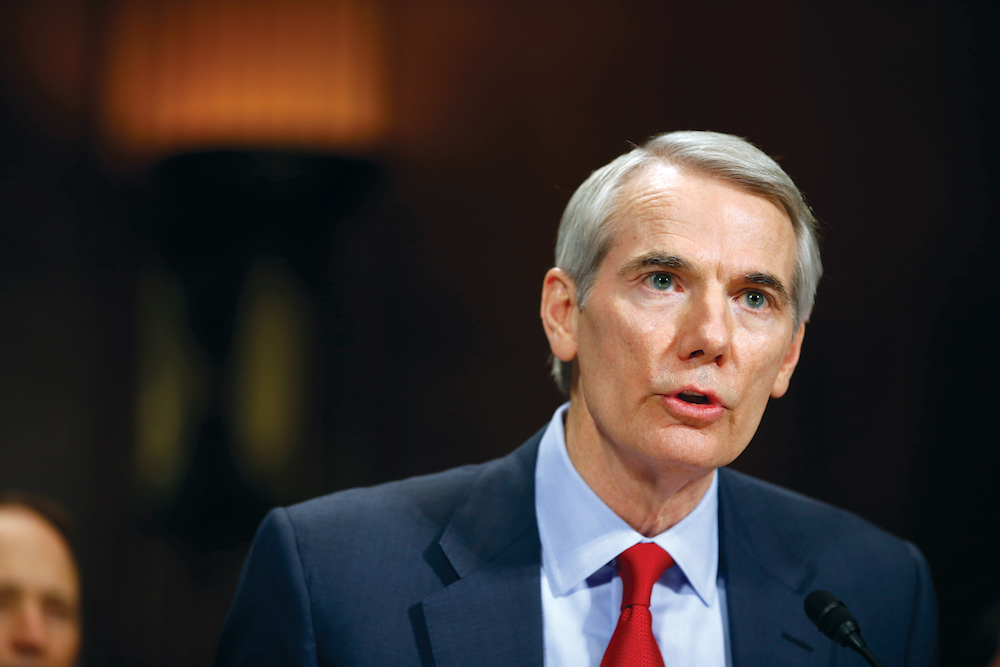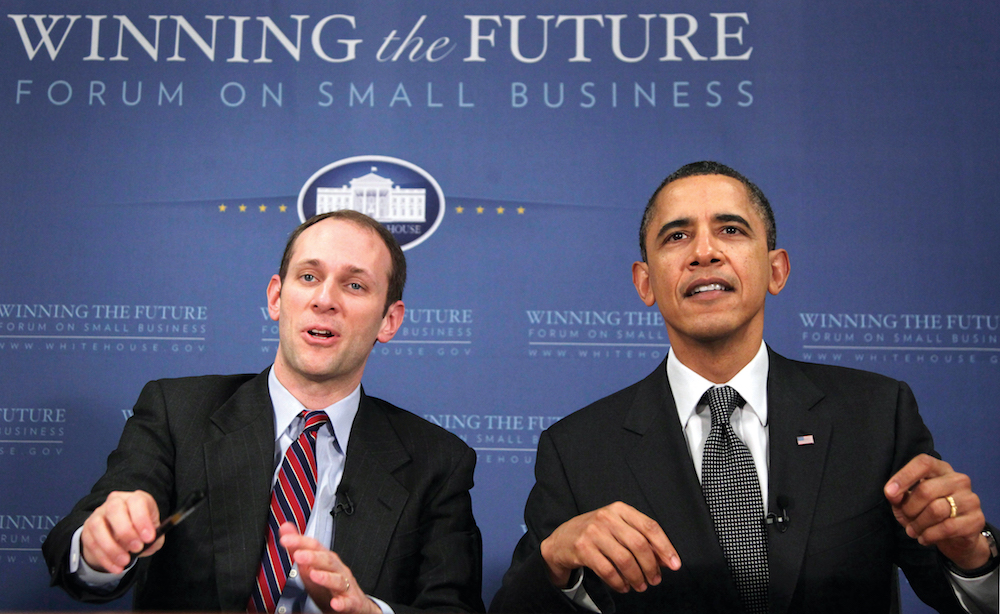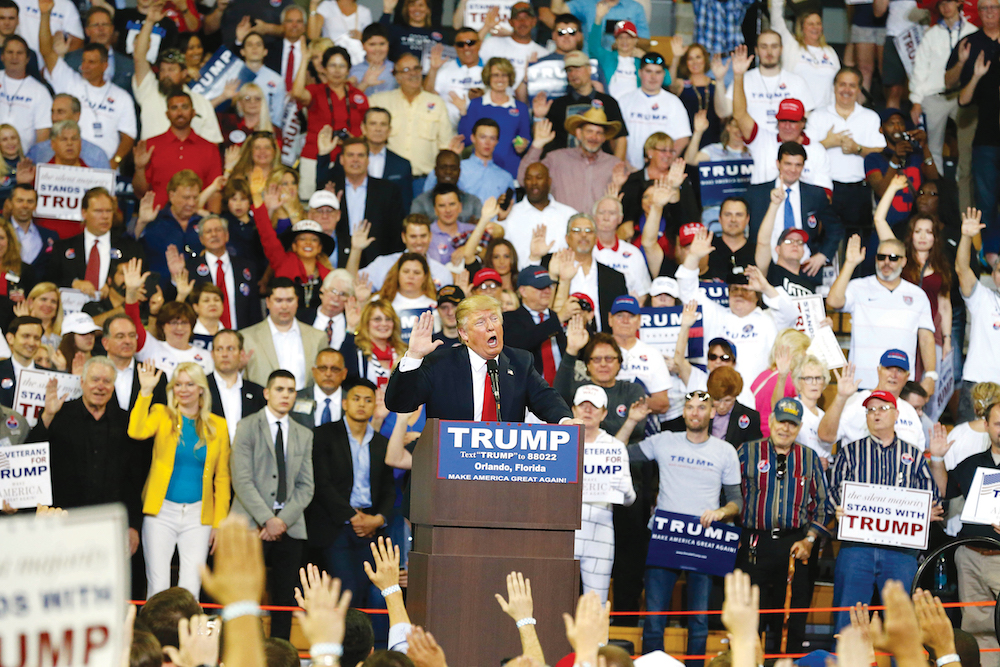Ohio Sen. Rob Portman scheduled a press call with state reporters in early February to announce surprising news: He would oppose the Trans-Pacific Partnership, the massive trade deal that President Obama’s officials have been negotiating with 11 Pacific countries for years.
Portman’s announcement was surprising, an about-face by one of the most business-friendly Republicans in Congress, who can boast a 92 percent lifetime voting rating from the Chamber of Commerce. He even served as U.S. trade representative under George W. Bush, responsible for propelling the Central American Free Trade Agreement to passage and into law.
Yet when a successor trade representative signed the Pacific Rim deal in New Zealand, Portman told his constituents, “We need to do better for the sake of American workers who are depending on the administration to give them a level playing field.”
International trade has upended Ohio in recent decades. While there were more than 1 million manufacturing jobs there in 2000, today there are just 673,000. Many of the jobs left the state due to international trade, especially with China.
Portman’s turnaround is a clear sign of how shifting trade winds have altered politics.
Beneath the theatrics, controversy and unremitting media onslaught, Donald Trump’s unexpected success is about those same economic trends that have left many Americans feeling let down by business and government.

Portman’s opposition of the Trans-Pacific Partnership was an about-face by one of the most business-friendly Republicans in Congress, who can boast a 92 percent lifetime voting rating from the Chamber of Commerce. (AP Photo)
“The primary appeal he has is that there’s a group of people who have been under a lot of economic competition for 15 to 20 years that those of us who tend to make policy have not felt and consequently have a hard time understanding,” said Henry Olsen, an elections analyst who has warned that the Republican Party was falling out of touch with working-class voters. “They feel that both parties are making policy that favors foreigners over themselves, both the trade agreements and by immigration, and they don’t see that anyone in the two parties really addresses it.
“Then Trump comes along and he enunciates every single one of their concerns. And he says the reason why it isn’t happening is because the parties don’t care about you. I do. And I’ll make America, and you, great again,” Olsen said.
Political scientists and other researchers who study elections think the economy swings elections: The faster economic growth, especially in the last months before the election, the more likely the incumbent party will stay in office.
Elections research suggest that voters have become increasingly unhappy with the impact of trade and immigration and have punished officeholders for it.
And campaigns have adjusted to meet workers’ concerns. When he was a senator, Obama harshly criticized the North American Free Trade Agreement on the campaign trail in Ohio in 2008. But a leaked memo from the Canadian diplomatic corps indicated that his economic adviser, Austan Goolsbee, had visited the consulate in Chicago to reassure the Canadians that Obama’s anti-trade stance was “more reflective of political maneuvering than policy.”
The Obama campaign denied the memo, but his record in office suggests it was closer to his real view than his campaign rhetoric was.
Yet the strength of anti-trade sentiment is perhaps still underappreciated. On paper, removing or lowering trade barriers shouldn’t lead to economic pain in the long run. Workers may lose jobs when companies move to countries with lower wages, or if merchants import cheaper goods. But those workers benefit from lower prices that result from free trade, and faster economic growth brings new and more plentiful jobs in new areas. Although academic economists disagree on almost everything, they are nearly unanimous in saying liberalized international trade creates prosperity. But the public doesn’t believe it.

A leaked memo indicated that Obama’s economic adviser, Austan Goolsbee, had reassured Canadians that Obama’s anti-trade stance was “more reflective of political maneuvering than policy.” (AP Photo)
Recent research on the impact of trade on workers is complicated. Outsourcing and offshoring of labor to China has meant trouble for people who worked in towns and regions that depended on factories for jobs.
In a paper published in January, prominent economists David Autor, David Dorn and Gordon Hanson warned that, in areas that saw manufacturing losses when trade with China was liberalized, new jobs mostly “failed to materialize.” The study found that creation of new businesses and its adjustment of trade patterns in those places was “stunningly slow.” Once business began moving to China, they estimated, it takes more than a decade for unemployment and labor-force participation to recover.
Voters in those places, such as Ohio, Pennsylvania and Michigan, are more likely to have soured on the political system.
“If you were a steelworker in southwestern Pennsylvania in the ’50s, ’60s, and even early ’70s, you made a pretty good life because there wasn’t that much global competition. Europe had been shattered,” said Dennis Quinn, one of the paper’s authors. “But starting in the 1970s you had a round of financial shocks” that changed that, most significantly China opening to trade.
Now, there is “enormous fertile ground for anti-trade candidates, particularly in those manufacturing states,” Quinn said. The study found that many of the states that today are “swing states,” including Iowa, North Carolina, New Hampshire and Wisconsin, in addition to Ohio and Pennsylvania, are at risk of having jobs moved overseas. In those areas, as a result, people are noticeably less willing to vote for incumbent parties.
Trump has capitalized on those feelings, with rhetoric wildly out of step with Republican orthodoxy.
In an early March debate in Detroit, where residents are inclined to blame trade liberalization for the collapse of their once-great city, Trump ripped into opponent Sen. Marco Rubio for favoring the Pacific trade deal, which Trump called a “total disaster.”
“If you look at China, and you look Japan, and if you look at Mexico both at the border, … and with trade — and every other country we do business with we are getting absolutely crushed on trade,” Trump said at another point. “I say free trade great. But, not when they’re beating us so badly.”
Other candidates have strived to maintain perfect scores from conservative advocacy groups such as the Club for Growth, which favors trade deals and tries to defeat Republicans who are not fiscally conservative. The New York real estate mogul, however, has proposed steep tariffs on trade partners that manipulate their currencies and taxes on companies that move operations into Mexico.
On the campaign trail, Trump has seized on examples of specific corporations moving abroad. Last year, he pledged to boycott Oreos after Nabisco announced plans for a factory in Mexico. This year, he threatened to tax air conditioners after executives of Carrier, a manufacturer, were videoed telling a large crowd of workers that their Indiana factory was going to be moved to Monterrey, Mexico.
Helped by high immigration

Trump has embraced Sen. Jeff Sessions’ rhetoric for restricting immigration, focused on saying immigration policy should put Americans’ interest first. (AP Photo)
The corollary to Trump’s positions on trade are his proposals for restricting immigration. There, too, he has picked an idea that many Republicans avoid or discuss only hesitatingly.
He has worked with Sen. Jeff Sessions, the Alabama Republican known as Washington’s staunchest opponent of liberal immigration policy. Trump hired one of Sessions’ top aides and earned Sessions’ endorsement. For years, Sessions has tried to publicize polls indicating that more than four out of every five members of the public do not want immigration increased, as it would have been by a 2013 Senate bill backed by Rubio. Sessions has also developed popular language for restricting immigration, focused on saying immigration policy should put Americans’ interest first. Trump has embraced much of that rhetoric.
Researchers are only now learning more about the impact of mass immigration on voting patterns. It’s long been thought that the large waves of Democratic-leaning immigrants since the 1970s would tip the scales against Republicans. In a 2012 book, the Emerging Democratic Majority, elections analysts John Judis and Ruy Teixeira predicted that demographic changes would make it impossible for Republicans to win and would usher in a new age of left-liberal change.
In a paper published in January, a group of economists including the high-profile immigration expert Giovanni Peri found that immigration had another, more subtle impact on elections. While immigration boosts the Democratic Party because immigrants vote Democratic, they found it can also tip voters into the Republican Party. When immigration levels are high and people become aware that their own circumstances are being changed by new arrivals, they vote for Republicans since the GOP is viewed as the party that could limit immigration.
“[N]oncitizen/undocumented immigrants are both the enemy and the raison d’etre of some politicians: right-wing parties in Europe and vocal anti-immigration Republicans in the U.S. flourish in localities and times characterized by high noncitizen immigrant share,” the researchers wrote. The anti-immigrant dynamic was especially pronounced, they found, in areas with many low-skilled jobs for which native-born workers without much education might have to compete with immigrants.
By hammering home that America and its middle class are being hurt by other countries through trade and immigration, Trump has taken the advantage in speaking directly to the economic insecurities riling many voters.
His border wall and trade wars “may not be the right solutions, but he gives an aura of authority,” said Jeff Bell, policy director for the conservative research group American Principles Project, and the author of a book on populism.

By hammering home that America and its middle class are being hurt by other countries through trade and immigration, Trump has spoken directly to the economic insecurities riling many voters. (AP Photo)
Bell, who ran for the Senate from New Jersey supporting free trade and a liberal immigration reform, suggested that it is to Trump’s advantage in the GOP primary that he has defied Republican orthodoxy, given that Republican “elites” have not come to terms with the damage the country suffered in the financial crisis.
“At a time when voters don’t think that the political elites have any idea how bad things have gotten for them — for workers, voters — it has a lot of appeal,” Bell said of Trump’s rhetoric. “Because people do think America has fallen from its former greatness, and they want to see somebody who thinks [they] can bring it back.”
Trump’s heresies from orthodox Republican policy could also work in a general election. One advantage would be his uninhibited criticism of the Republican establishment, especially of George W. Bush, who is still associated with the financial crisis. Another would be his rejection of conservative proposals to reduce government spending on entitlement programs such as Social Security and Medicare, both popular.
If Trump is nominated, the best thing that could happen for him politically would be for the economy to slow, which does not look unlikely given investor bearishness early this year and global financial market volatility.
Recent research indicates that voters tend to pass judgment on an incumbent’s economic records in the six to 12 months before an election, regardless of what may have happened in the years before. That judgment accounts for roughly half the variation in election outcomes.
The possibility of growth sagging before the November election would “add fuel to the support for Trumpism,” which is already rooted in the perception that Trump would be a good steward of the economy, said Matthew Dickinson, a political scientist at Middlebury College.
Ultimately the “economy is the primary driver of his support, more than issues like immigration, more than the implied racism of his supporters,” Dickinson said.
And in his ability to reach low-earning Democrats who might otherwise be put off by Republicans, Trump is a “distant cousin” of Ronald Reagan, he said.
